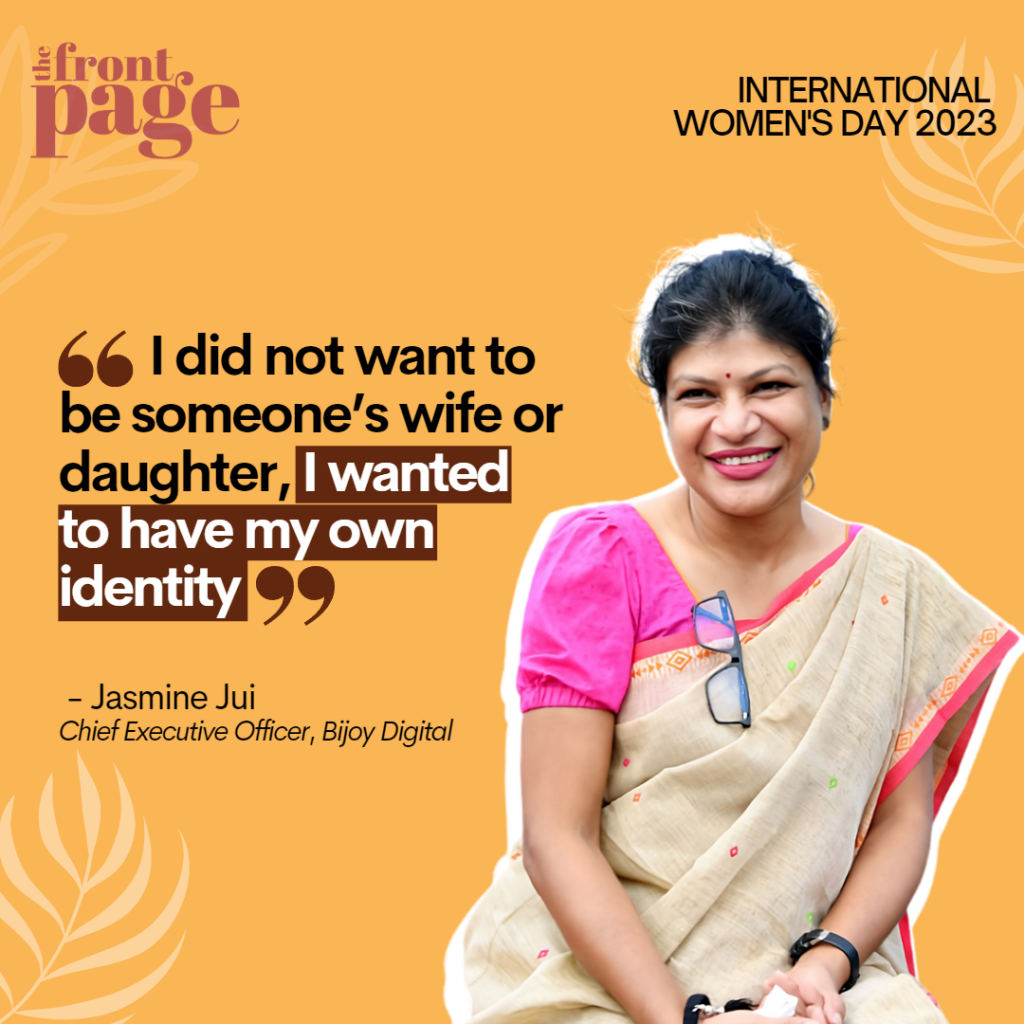
Sharmin Kabir
Founder, Wreetu Health and Well-being Foundation
Sharmin Kabir was raised in Kishorganj. She completed her schooling in her village before studying English Linguistics as an undergraduate at BRAC and later studied TESOL at the Master’s level. Sharmin Kabir has enrolled in DU’s MPhil program, where she is studying Menstrual Hygiene Management. Her topic is about using technology to bridge the gap between resource availability and information.
After completing her Master’s degree, She joined BRAC IED for a full-time project, and her field of work mainly focused on adolescent girls. During that time, she realised that these girls don’t have adequate resources or information on period or puberty health. Furthermore, the change in mindset and general appearance during adolescence left these girls with a lack of self-confidence. They lacked knowledge about menstruation health since they were never told about it. Using her personal experience and some internet search, Sharmin Kabir decided to break the stigma to make sure Bangladeshi girls can talk freely about menstruation health without hesitance. In 2016, she left BRAC to found Wreetu, an organisation aiming to remove the period taboo once and for all. From her field experience, she found that period hygiene is a neglected topic in Bangladesh.
The main challenge was the hesitance of people not talking about the period, which could be a problem. According to Ms. Kabir, the gap needs to be identified by parents or schools. But there is much scope to talk about it. Wreetu had to eradicate the mentality of not talking about menstruation. Another challenge was to create the necessary awareness in both genders regarding the topic. Wreetu has completed a movement under the guidance of Ms. Sharmin. Her sisters and relatives felt skeptical about her work, thus getting little support from the family. Many schools felt negligent about menstruation, but now they are speaking out. Ms. Sharmin had a difficult time assembling a team.
There is a knowledge gap everywhere regarding the period. A common effort is given during the ice-breaking sessions, making them aware that the period is something to discuss. Another challenge faced during these times was that young adults are more negative than teenagers. The vision of Ms. Sharmin regarding Wreetu is to eradicate the taboo regarding periods once and for all by 2030.

Maleena Gomez
Creative Director, Aneemal Studios
“I started my career in advertising in 2013 — just imagine a 19-year-old juggling art school and crazy work hours and the image is pretty much what I was 10 years ago!” quoted Ms. Maleena.
Being a young recruit, she always had to work extra hours and had no scope for slip-ups, but it instilled in her a constant drive to prove her skills and talents to show that she was fit for the role she was given.
There was a point in her career as an Art Director where she was assigned to lead a team of assets — who were much older than she was, and all men to boot. Needless to say, it really was quite a struggle to get the team to accept her authority, in fact, it was fairly intimidating at some points as well. But she had full faith in herself and what she was doing, also with all respect to the leaders who thought she would be fit for that role, she pushed through. Soon enough her team recognized that as well and they accepted her with love and admiration.
Today, she is managing her own design studio (Aneemal Studios) as Creative Director and Project Lead, while also operating as the Creative Head for Monno Ceramics, a company with a significant stage presence in the Bangladeshi ceramics industry. It’s worth noting that the designers and marketers, in both teams, that I’m working with are all younger than me.
As a female entrepreneur and professional handling all these titles and leadership roles, she still often faces difficulty being taken seriously and having people following her instructions. She never stopped believing in herself and her abilities for a day, and doesn’t plan on doing so anytime soon. She thinks hard work, confidence, and knowing how to hold her ground strongly can help her grow.

Shomy Hasan Chowdhury
Co-Founder, Awareness 360
Ms. Shomy was privileged to grow up in an open-minded family. However, as she was trying to establish herself as a social impact entrepreneur, requiring her to interact with the broader society, the gender imbalance that still exists today became increasingly apparent to her. She experienced similar hardships as other Bangladeshi women, including getting unsolicited advice on every facet of life and being protected at the expense of her freedom. Others didn’t have much confidence in her, and she often needed to prove herself. People questioned her intentions, actions, and outcomes. When people hear her success story, they appear surprised, as though it’s difficult to believe a young woman can do remarkable things.
She is often invited to high-level events around the world to speak about her work; at this point, she is used to immigration officers’ raised eyebrows. In 2018, she was invited by the Government of Pakistan to be an International Election Observer of Pakistan’s General Elections, appointed by the Commonwealth Secretary-General Rt. Hon. Patricia Scotland. She struggled to persuade certain officials that she had been assigned such a significant responsibility. Aside from these personal struggles, she also noted the disproportionate impact of women in her line of work. Women founders continue to struggle with access to funding. In the Water, Sanitation, and Hygiene (WASH) sector, girls and women shoulder the burden in most communities. For instance, it is them who are tasked to walk mile after mile to fetch water, skipping out on prospects for employment and education. This even puts them at risk of sexual assault.
Dismantling patriarchy in all of its manifestations, in order to establish gender equality and equity, is a long process. Even if the seed they are planting today might not bear fruit right away, we shouldn’t give up. This is why she feels motivated to continue her work despite the challenges, to lead by example, and to celebrate small wins, in hope of leaving a collective lasting legacy that will benefit present and future generations.

Sarah Zita
National Consultant at UNDP, Consultant at Joyeeta Foundation
After studying at BAF Shaheen Jessore, she came to Dhaka with a dream. Without any knowledge of the level of competition in the outside world, she gave it her all and eventually received a degree in finance and banking. She recalls her school days, when she wrote an essay about dreaming of being an entrepreneur one day. Her dream was shunned by the teacher, who suggested that she change her aim, as a doctor or an engineer would suit a woman better. She was the only female taking up commerce subjects in her college, even when she was an ace student and was expected to take up science by her peers. She took a leap of faith and expressed her desire to go ahead with commerce.
Her work life was not easy either. Inspired by a woman in a senior management role at her workplace, she desired to fly high like her. As a female working in a male-centric role, she had to face a lot of challenges because of her vocal personality. Her realisation came when she saw that a female working in any similar position as a man struggles harder to make a place for herself. This was also when the dream of being an entrepreneur became deeper when she understood the significance of having female entrepreneurs in the country. She was courageous and was not afraid to speak her heart out. She was also under additional pressure to care for her home as a wife and daughter-in-law. Even though she had to leave her job when she became a mother, she could not leave her passion for starting a business. This is when destiny took an interesting turn.
In early 2012, she was inspired by her childhood friend who worked in eCommerce and started Monihari, which was one of the first businesses to do customised products such as T-shirts. She was invited by eCAB to gather with similar eCommerce entrepreneurs, where she was the only woman. There she expressed her desire to work with women entrepreneurs, and Women & eCommerce was started with her involvement. From then on, she went on to work with Anondomela, UNDP, and the Joyeeta Foundation, all guided by her passion to work as an entrepreneur and her zeal to do something for women entrepreneurs in Bangladesh who go through similar challenges.

Jasmine Jui
Ms. Jasmine studied at Azimpur Girls’ High School and was always keen to read. She noticed that she was good at recitation. At that adolescent age, she did not know what to do with her life but coming from a very conservative family in Old Dhaka, she grew up in a traditional environment. She knew that she did not want to be recognised as someone’s wife or daughter. She needs to have her own identity. Her career started when she took up tuition during her SSC. She realised that she has a good potential in the teaching field. She went ahead with a teaching career and luckily faced no restrictions as her peers felt that teaching is a secured career for females. She completed her Honours in English at Eden Mohila College.
She taught at Holy Cross School and College but she had to leave after two years as she was blessed with a daughter. She later joined Raihan School as an English teacher and spent 9 years teaching. She later felt stuck and realised that there was not much space to grow. She wanted to explore something new, still she was afraid to take a step forward. However through a circle of networking, she was hired to work at, which would later be named as Bijoy Digital. She had Mustafa Jabbar as her mentor to guide her. Mustafa Jabbar saw her sincerity, work ethic and honesty. She recalls her personal journey throughout her 14 years of career at Bijoy Digital which not only helped her grow professionally but personally as well. She got to explore her creative side and used her experience as an English teacher to work behind the production process of Bijoy Digital.
She had a big role in building the character “Bijoy” as she wanted to have the essence of Bangladeshi root in the character. Bijoy Digital works to digitise the primary books for kids from preschool to class five. She had a vision and she lived up to it. Today, everyone recognises her as the woman behind Bijoy Digital.

Akhtar Sanjida Kasem (FCA, FCMA, CFE)
Managing Partner, A Quasem & Co.
In the early 70s, Sanjida Kasem started her school life. She started her education at Little Jewels School and then continued to Agrani Girls School which had 4 disciplines to study, unlike many other schools of that time. When she was in class 8, she chose to be a Chartered Accountant following her father becoming ill. Previously she dreamt of becoming a doctor just like any other girl back then. The trouble with becoming a CA was, there was no proper female CAs to talk about the challenges.
Inspired by her SSC results, she finally thought of becoming the CA she always dreamed of. She completed her graduation in 1988 from a comprehensive course and enrolled in CA. She passed her CA and then CMA in 1991 with one go. After her completion, she joined her father’s firm and worked for a while. Later she moved to work in Singapore. And then, came back to Bangladesh to work full-time at her father’s firm. “On the contrary to what people think that I don’t have to go to the office since it belonged to my father, I worked like any other employee would do,” said Ms. Sanjida.
According to Ms. Kasem, in the field of CA, the given allowance is not enough to survive compared to the effort invested towards the job. Academically, DU now offers 11 subjects, up from four previously. This makes it easier for women to obtain leadership positions. As well as, if these prospects are missed, this will be a massive mistake. Even if a woman does not advance to a higher level of management, there is always room for middle-level management roles because young women can multitask without losing focus. Women prefer to work in a cleaner environment which is why they are less likely to be associated with any criminal activity such as corruption. However, females stay in the labour force for a shorter period of time because there is no adequate infrastructure or logistical support to encourage them.
Another problem faced by women is the lack of a childcare system in this country. If we address these then soon we can see female employment rising higher. According to Ms. Sanjida, you can’t have everything. As a woman, Sanjida had to sacrifice some things from her life that her family is now used to. Sometimes, some opportunities are missed to give time to family as she loves to give time to her family and her colleagues too.
People are taking CA more seriously than they used to before and it is reflected by the numbers.
Certain initiatives from the institutes and firms have popularised the CA culture to more females and women are now in a more strategic position playing an important role by encouraging young girls which is making the companies more enthusiastic to hire females in designated positions.



